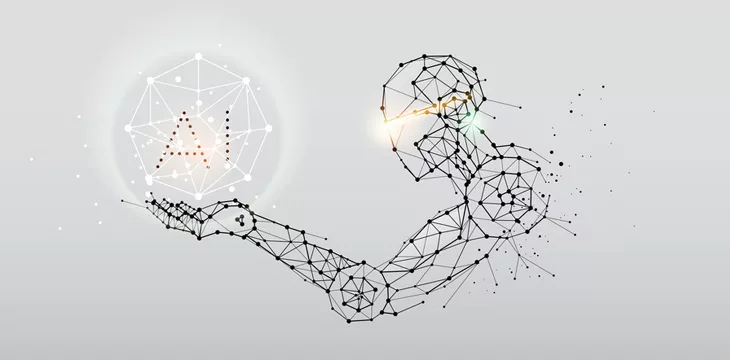|
Getting your Trinity Audio player ready...
|
Thanks to artificial intelligence (AI), the workplace is undergoing a transformation that is full of remarkable opportunities and noteworthy challenges.
Recently, work management platform Asana released a comprehensive report titled “The State of AI at Work” that explores AI’s impact in work settings.
AI in the workplace: Insights and trends
The company surveyed 4,546 employees across the United States and the United Kingdom and was able to unearth many insights about AI in the workplace.
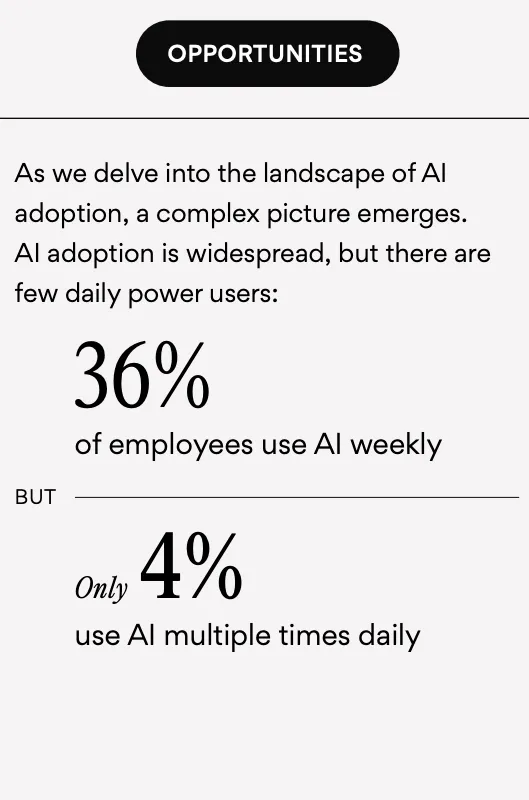
The report found that while AI use is widespread, with 36% of employees utilizing it weekly, only 4% engage with AI multiple times daily. This gap highlights that we are in the early stages of AI integration in daily work routines.
Although AI is no longer a new technology, it has only recently become broadly accessible and user-friendly, especially for those without specialized expertise. For many, their encounter with AI is often limited to interactions with advanced general intelligence (AGI) chatbots like ChatGPT.
Currently, many consumers use platforms like GPT as a more efficient and precise alternative to traditional search engines, or as digital assistants for sporadic tasks. This trend may explain why only a minority of those surveyed engage with AI multiple times daily—the majority may not have a consistent need to tap into AI on a daily basis, and even those who do may not be using AI for its advanced capabilities.
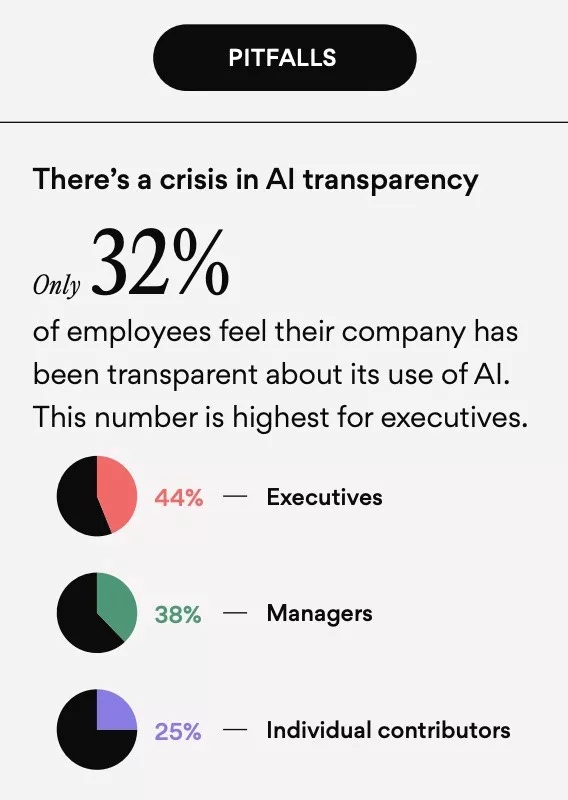
The report also found that 32% of employees surveyed felt that their companies were transparent about their AI use, with the figure being highest among executives.
Although it’s not exactly clear what the respondents meant by this, it could be a reference to an employer obfuscating AI’s use in various processes like hiring, which have been known to have biased outputs, or it could be a belief that employees have that their employer may have undisclosed AI initiatives in development that will automate tasks and replace workers, afterall, nearly one-third (29%) of employees surveyed said that their jobs are replaceable by AI.
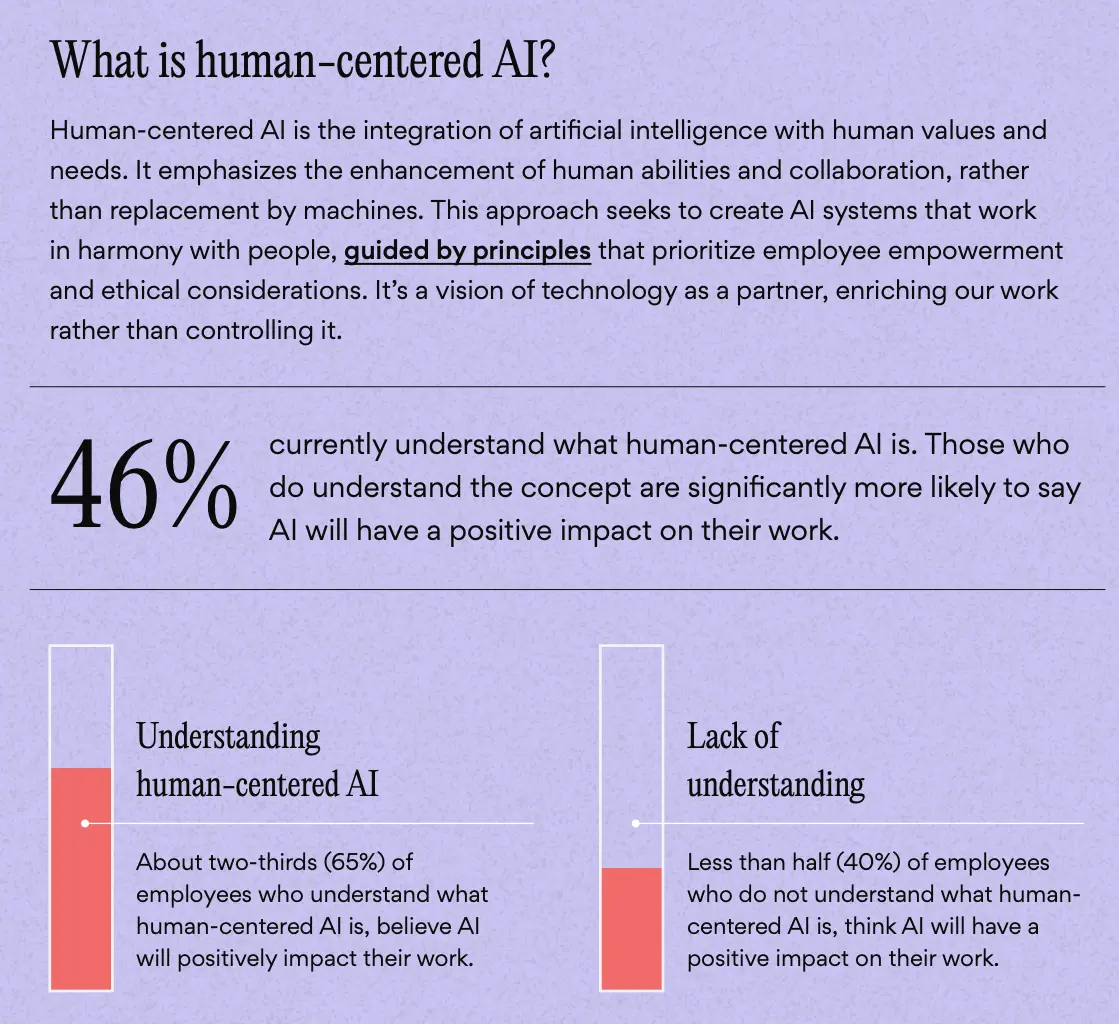
The report notes that this is why the concept of human-centered AI is an important factor.
“Human-centered AI is the integration of artificial intelligence with human values and needs. It emphasizes the enhancement of human abilities and collaboration, rather than replacement by machines. This approach seeks to create AI systems that work in harmony with people, guided by principles that prioritize employee empowerment and ethical considerations. It’s a vision of technology as a partner, enriching our work rather than controlling it.”
It indicates that if more people were aware of human-centered AI, they would be more likely to support AI in the workplace.
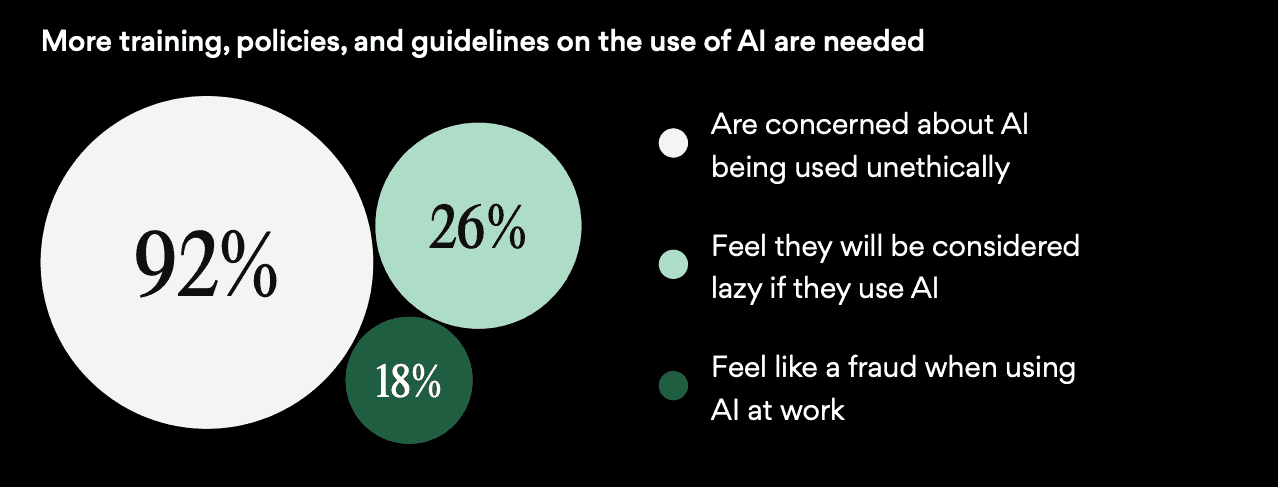
Additionally, a substantial number of employees (92%) are concerned about unethical AI use. In addition, many reported that using AI comes with a perception issue, with some fearing being seen as lazy (26%) or fraudulent (18%) for using AI at work.
But despite these concerns, optimism about AI is strong, with 52% of employees believing that AI will help their companies achieve objectives more effectively. This sentiment is even stronger among executives. The report suggests three key strategies to harness AI’s potential: establishing clear AI policies, defining AI principles, and sharing AI roadmaps with teams.
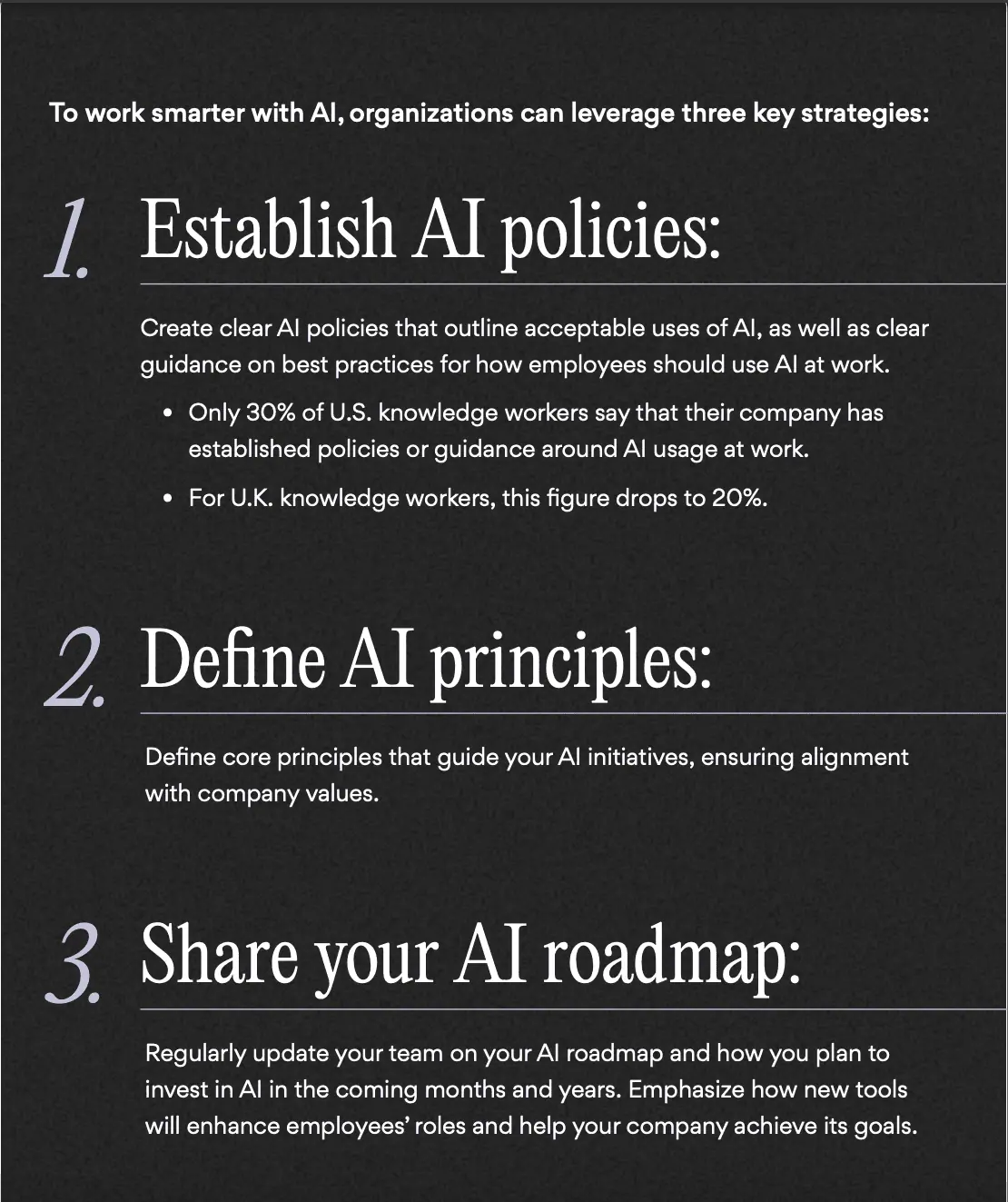
Amidst all the benefits and challenges, the report’s findings suggest that embracing human-centered AI can lead to a better workplace. Both employees and employers recognize the potential positive impact of AI. Still, simultaneously, they are seeking clarity on its application and role, wondering when it is appropriate to use AI and how it should be used.
If employers are able to provide that clarity and express that AI will serve as a supportive tool rather than a replacement for human labor. In that case, even more workers will be confident in the benefits AI can bring to their work.
As we step into 2024, the innovations of the previous year have set the stage for a significant increase in AI adoption across various industries.
In order for artificial intelligence (AI) to work right within the law and thrive in the face of growing challenges, it needs to integrate an enterprise blockchain system that ensures data input quality and ownership—allowing it to keep data safe while also guaranteeing the immutability of data. Check out CoinGeek’s coverage on this emerging tech to learn more why Enterprise blockchain will be the backbone of AI.
Watch: Turning AI into ROI

 07-02-2025
07-02-2025 
